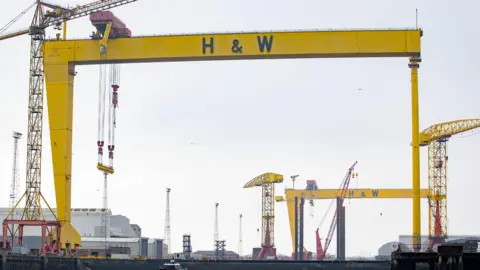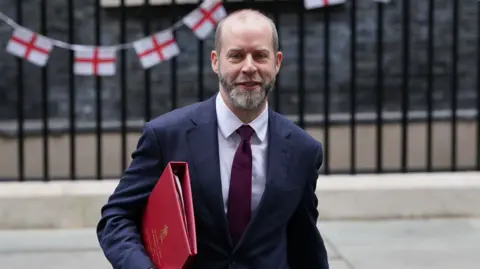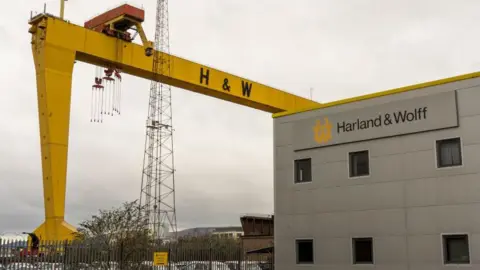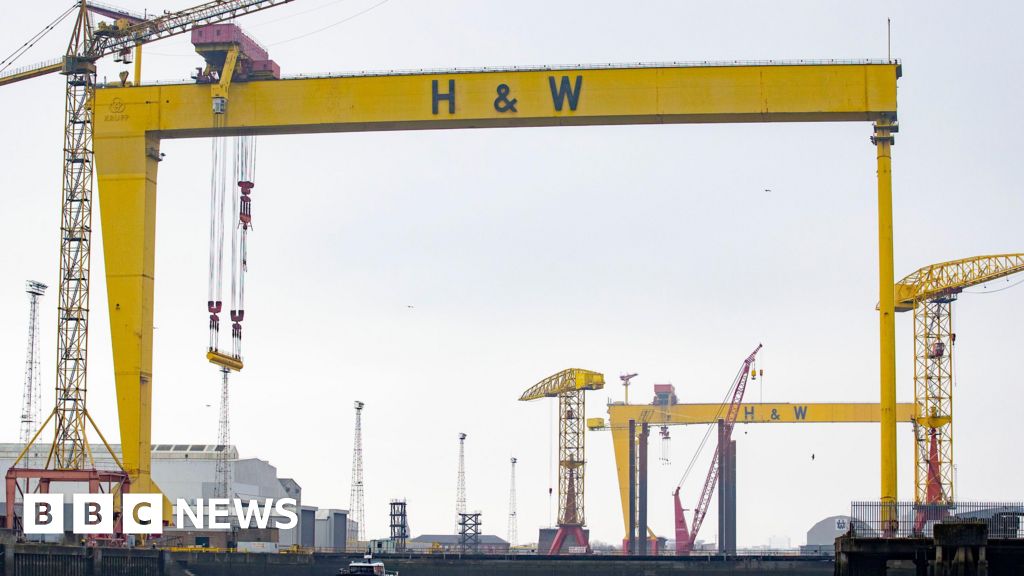By John Campbell, BBC News NI Economics & Business Editor
 PA Media
PA MediaHarland and Wolff has confirmed the company will not get a government loan guarantee and that its chief executive has left his job.
The shipbuilder had applied for a £200m loan guarantee, which was considered vital for its financial stability.
The company says it is in now discussions with its existing lender and hopes to secure new finance within days.
It had also hired an investment bank to “assess strategic options”.
That can mean a company is considering putting itself up for sale.
The chief executive John Wood is “taking a leave of absence from his role as CEO with immediate effect”.
 PA
PARussell Downs, a restructuring expert, is joining the firm as Interim Executive Chairman.
In a statement the company said: “He is well placed to lead the Board at this time as it seeks to complete a recapitalisation intended to give the Company a sustainable financial footing into the medium and long term.”
The UK business secretary is expected to make a parliamentary statement about the shipbuilder on Monday.
Harland and Wolff had applied for a government loan guarantee.
It wanted to take on £200m of new borrowing to refinance an £90m high interest loan from its current lender, Riverstone, and invest in its operations as it scales up ahead of a major Royal Navy contract.
It was seeking to borrow from a consortium of UK banks, but needed the government to act as guarantor – meaning if the loans were to go bad the state would step in to repay the lenders.
The new government considered it would be irresponsible to give the guarantee to the heavily loss making firm.
 Getty Images
Getty ImagesIt is understood that officials have had intensive contact with Harland and Wolff and its lender in recent days.
There is an expectation in government that a solution will be found which removes the immediate risk of the business falling into administration.
On Wednesday, Northern Ireland Secretary Hilary Benn said the government was committed to shipbuilding in Northern Ireland.
Harland and Wolff was bought out of administration in 2019 and in 2022 was part of the consortium which won a major contract to build three Royal Navy support ships.
The company has had to invest significantly to prepare for that work which has contributed to its losses.


